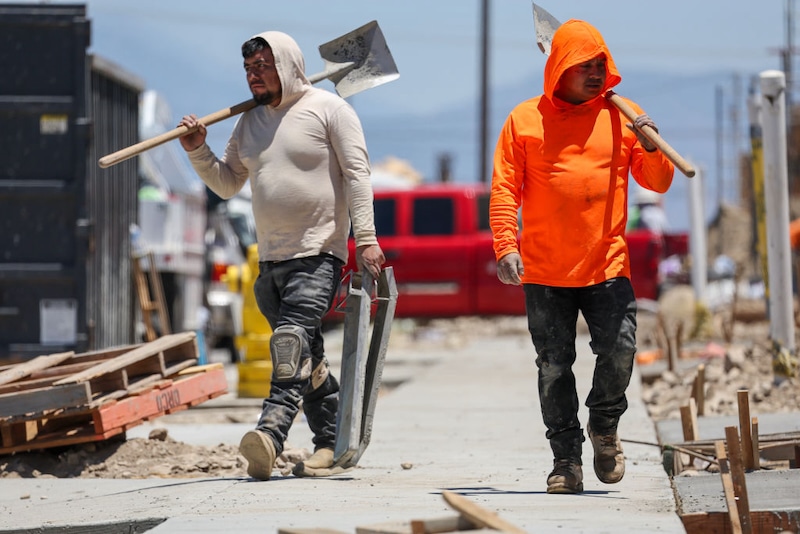
If you’re planning any outdoor activities this Fourth of July, be sure to hydrate regularly, wear sunscreen and watch for signs of heat stress, because it’s going to be a hot one.
A large portion of the United States — 110 million people across 21 states — will experience heat-related advisories and warnings in the West, southern Plains and Mid-Atlantic this Independence Day, reported Reuters.
“It’s really hot; I don’t know how else to put it,” said Jacob Asherman, a National Weather Service (NWS) meteorologist, as Reuters reported. “We’re having excessively hot weather across a lot of the country.”
According to the NWS, the next several days are predicted to bring an extensive heat wave with temperatures well above 100 degrees Fahrenheit in some areas.
“[W]ell above average temperatures over California and into southwest Oregon today before heat spreads further throughout the western U.S. this weekend,” the NWS forecast said. “Dozens of daily record high temperatures are possible, expressing the rarity of this early-July heatwave.”
The scorching temperatures are expected to continue into next week.
Portland, Oregon, was expected to edge toward 100 degrees Fahrenheit over the weekend — highly unusual for the Northwest city.
Jen Scott, a hardware store manager and native of Portland, said that, as a kid, “It was a big deal if it hit 90. But for the last few years, it’s been getting extra hot. But 100 is crazy.”
According to Scott, sales of fans and air conditioners have been booming.
“We’re not used to this,” she said.
The sizzling heat, low humidity and wind gusts in Northern California were exacerbating the state’s Thompson Fire, which had caused thousands to evacuate and grown to more than 3,000 acres since Tuesday, according to CalFire.
“Outdoor burning and especially fireworks are not recommended,” the San Francisco weather service warned before the holiday, as reported by CNN.

Phoenix was predicted to reach 116 degrees Fahrenheit by Friday. Last year the capital of Arizona had a record-breaking 54 days in a row of temperatures of 110 degrees or higher, which included the entire month of July, Reuters reported.
“Heat impacts can compound over time, therefore it is important to remain weather aware and follow the advice of local officials… It is imperative to stay hydrated, out of direct sunlight, and in buildings with sufficient air-conditioning when possible. It is also equally as important to check on the safety of vulnerable friends, family, and neighbors,” NWS said on its website. “If planning to spend an extended amount of time outdoors this Fourth of July, be sure to use caution and act quickly if you see signs of heat-related illnesses.”
The post 110 Million People in U.S. Under July 4 Heat Warnings and Advisories appeared first on EcoWatch.
